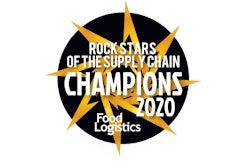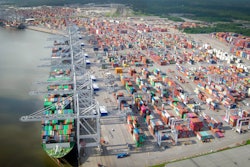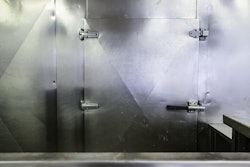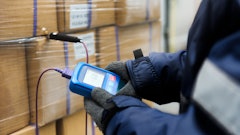
In a survey conducted by McKinsey & Company, 40 percent of a grocery chain’s revenue can be tied back to fresh food quality – fruits and vegetables, meat, fish dairy and backed goods – making it a critical necessity for retailers to defend their market position. Similarly, according to this survey, customer satisfaction in grocery stores is influenced by low prices and frequent promotions, but food quality and freshness is the biggest concern.
The survey research also indicated that grocers can boost sales by as much as 10 percent by improving fresh-food practices and policies. However, providing fresh food is a complex operation for grocery chains as prices are volatile, suppliers are fragmented, and quality control processes of perishable products are laborious and costly.
For grocers all over the world, food must be carefully monitored to ensure shelf life is maximized and it remains safe to consume. Due to rising consumer demand, retailers are carrying an ever-expanding range of fresh products, many of which have different temperature and handling requirements.
Additionally, food often has a long journey being transported by a refrigerated truck to the supermarket, traveling from temperature-controlled warehouse to the final shelf. Many factors over the course of this journey affect food safety and quality, including improper handling by personnel and inaccurate refrigerator calibration.
The process to measure temperature to address cold chain compliance regulations and to ensure fresh goods for consumers has primarily been accomplished by manually checking and recording temperature readings of refrigerated units and inserting a probe thermometer into food. This process is labor intensive and wasteful and is accepted as the industry norm.
In 2017, Axino set out to develop an automated and continuous temperature monitoring system with innovative technology that could disrupt retail cold chain refrigeration. By asking key questions, including “How fresh is food,” “Can we digitalize and automate the multiple processes concerning quality assurance” and “Can we automate the process in the store itself,” Axino set out to ensure quality food for shoppers and help reduce product loss for grocers.
Axino developed an artificial intelligent algorithm that is highly accurate and can guarantee the core temperature of any food group item within one degree Celsius. Axino’s digital measurement software and hardware components, combined with Semtech’s LoRa® devices and the LoRaWAN® protocol can wirelessly detect and communicate the core temperature of a product with sensors placed inside coolers up to one meter away from the actual food items.
By leveraging LoRa for its Axino.IoT.FoodSafety temperature monitoring and asset quality management solution, Axino was able to meet the ever-increasing legislative requirements related to fresh food operations and customer expectations of a wide choice of quality products.
The sensors developed can be quickly deployed into refrigeration infrastructure through a magnet with no external wiring. It can also be preprogrammed to adjust individual refrigerator unit temperatures there by maintaining a consistent temperature and keeping food safe. Real-time data evaluation and autonomous refrigeration adjustment help eliminate human error, prolong food shelf life and save customers money.
For the first time, grocery retailers are able to remotely and non-invasively monitor temperature of perishable food in refrigerated equipment. By implementing Axino’s connected temperature monitoring solution with LoRa-enabled low-cost sensors, gateways and LoRaWAN-based connectivity, grocers can improve the safety and security of fresh food while reducing food waste and lost revenues.
This technology provided Axino with the right resilient wireless signal to be able to roll out the coalition. It provides the right plug-and-play characteristics for solution that is easy to deploy and maintain, making it very attractive to consumers.
For smart refrigeration solutions, LoRa devices allow accurate and consistent monitoring of temperature data. Axino’s artificial intelligence algorithms utilize this data to predict core temperatures of different food items and automatically adjust temperature levels to comply with safety regulations. As a result, customers reduce their amount of water product and increase their return on investment.
Using LoRa chipsets, Axino’s solution provides easy-to-understand, real-time and historical temperature data on a web-based dashboard or mobile device. The visual display includes interactive charts and customized mapping of sensor locations. Alert notifications are built into the system to send warnings when sets of defined temperature rules or thresholds are exceeded.
This successful solution was the perfect choice for Axino. It offers low energy consumption, built-in security functionality, low implementation and operating costs, long battery life and reliable public and private network performance. This technology is being deployed globally including with Migros, Switzerland’s largest supermarket chain. Not only does this solution guarantee fresher food, but grocery store employees are able to spend more time taking care of other tasks.


















